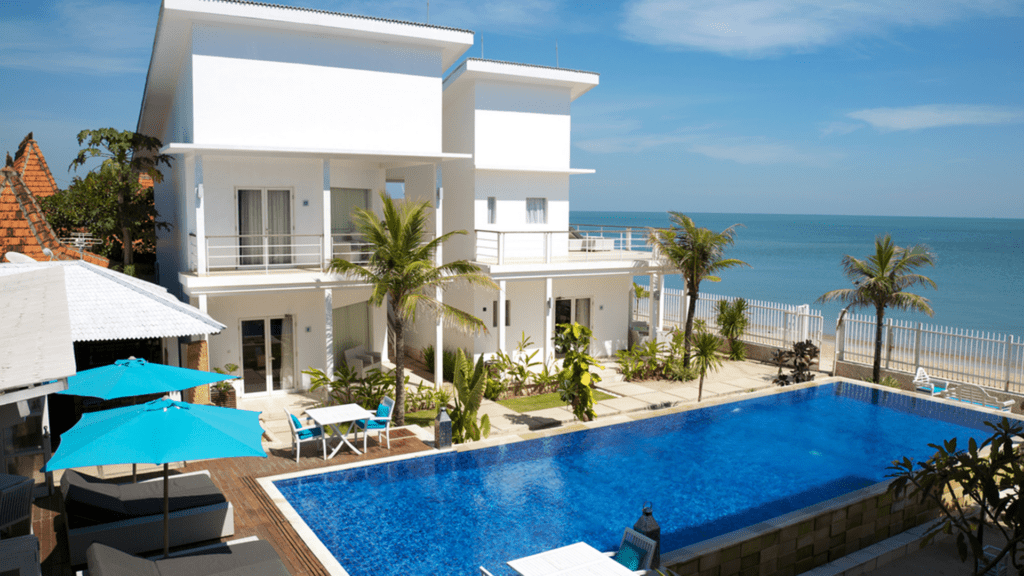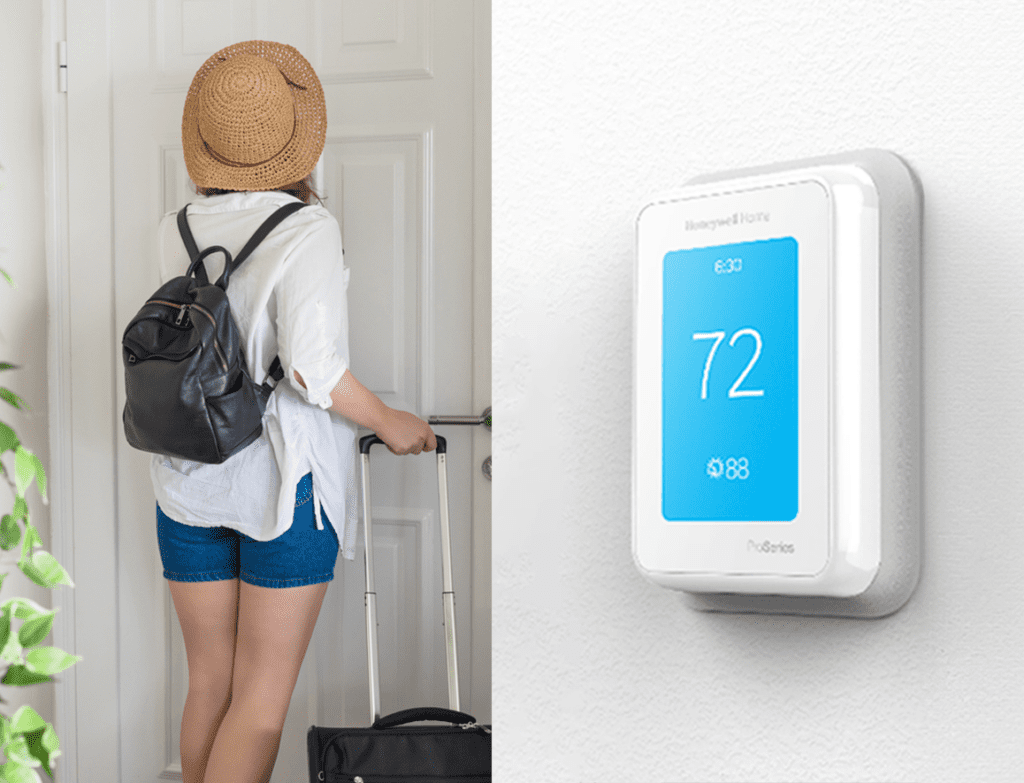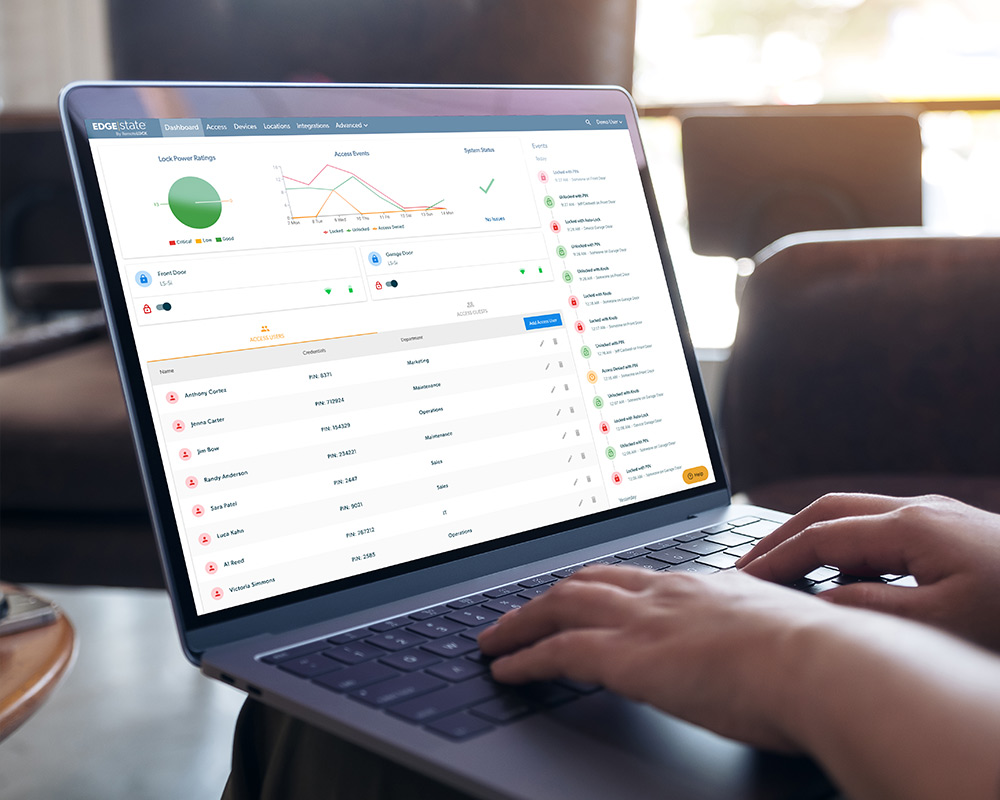4 Vacation Rental Trends to Watch in 2025

The vacation rental industry is still on the same steady rise it’s been enjoying for years. According to Grandview Research, the short-term rental market has grown from $89 billion in 2023 to $95 billion in 2024, and it’s expected to continue to nearly $110 billion by 2030.
While the industry is growing, it’s also evolving — properties and managers are incorporating technology to get smarter, more efficient, and more guest-friendly. At RemoteLock, we’re committed to helping property managers enhance their operations and deliver exceptional guest experiences by improving our software to meet the market’s changing demands. This year we’ve gathered the top vacation rental industry trends for 2025, highlighting how automation and technology are reshaping the future.
1. Integration of Smart Home Technologies

Vacation rental guests seek modern and well-equipped properties, which often means those fitted with smart home technologies. With smart locks like those managed by RemoteLock, guests can easily check in and out without interacting with a manager or host. Smart locks also offer hosts and managers unparalleled peace of mind, allowing them to know exactly when guests come and go.
Smart thermostats are another vacation rental trend gaining popularity. With a smart thermostat, managers and owners can adjust the temperature of a rental unit before guests arrive in order to make a good first impression, then change it back automatically when the unit is empty to save money and energy.
Despite the added convenience and efficiency of smart home technologies, a recent survey found that almost a quarter of vacation rentals don’t offer contactless check-in to their guests. However, we expect smart tech adoption to continue growing over the coming year.
2. Adoption of Property Management Systems and Point Solutions

As property management needs get more complicated, managers and owners are turning to software solutions for help. A centralized property management system (PMS) can help managers handle billing, booking, and guest communication from one centralized platform.
But perhaps the most valuable feature of a PMS is the ability to integrate it with point solutions like RemoteLock. As your vacation rental business grows and requires more customization, you’ll find that you need dedicated software for certain aspects of your business.
For access control, channel management, cleaning, maintenance, and more, point solutions might be the best option.
3. Artificial Intelligence and Machine Learning
AI and machine learning have been a topic of conversation in virtually every industry in the last few years, so it’s no surprise that these tools are one of the top vacation rental trends as well. Managers are eager to implement any tool that can help them automate repetitive processes and handle customer requests, and AI chatbots show great promise in that area.
AI tools can also help to elevate your guests’ experience. From recommending local attractions to anticipating guest preferences, personalization enhances the overall stay and boosts guest satisfaction.
Behind the scenes, AI tools can also help managers predict the busy season, adjust pricing, monitor market demand, and track their competitors’ rates. With the advantage of technology, property managers can maximize occupancy and revenue without the guesswork.
4. Catering to Remote Work and Extended Stays

The term “digital nomad” gained popularity during the pandemic in 2020, but according to a recent survey, over 18 million American workers still refer to themselves as digital nomads.
With more than 30 million Americans likely to be working remotely by 2025, some guests will be seeking vacation rentals equipped with high-speed internet, dedicated workspaces, and office supplies. Providing these amenities attracts a growing segment of digital nomads and remote workers.
Longer stays are also becoming more popular. By offering flexible lease terms, property managers can cater to guests who want the comforts of a vacation rental without long-term commitments.
The future of vacation rentals lies in embracing automation and technology. From smart home integrations to personalized guest experiences, these trends are transforming how property managers operate and guests interact with rental properties.
RemoteLock is here to help you stay ahead of the curve. Ready to upgrade your vacation rental management?

RemoteLock
Advanced Access Control and More
RemoteLock has been automating access control and improving on-site property operations efficiencies across multiple industries, including vacation rental and multifamily, for more than ten years. As a leading access-centered property operations software platform provider with more than 10,000 customers in 75+ countries, RemoteLock helps property managers enable, control, and automate access and climate control across their portfolio. RemoteLock’s platform saves property managers time and money through the elimination of tasks for onsite staff and helps scale businesses with greater confidence. It is differentiated by its dozens of integrations with applicable hardware and business software systems for an easy-to-use, turn-key solution.
